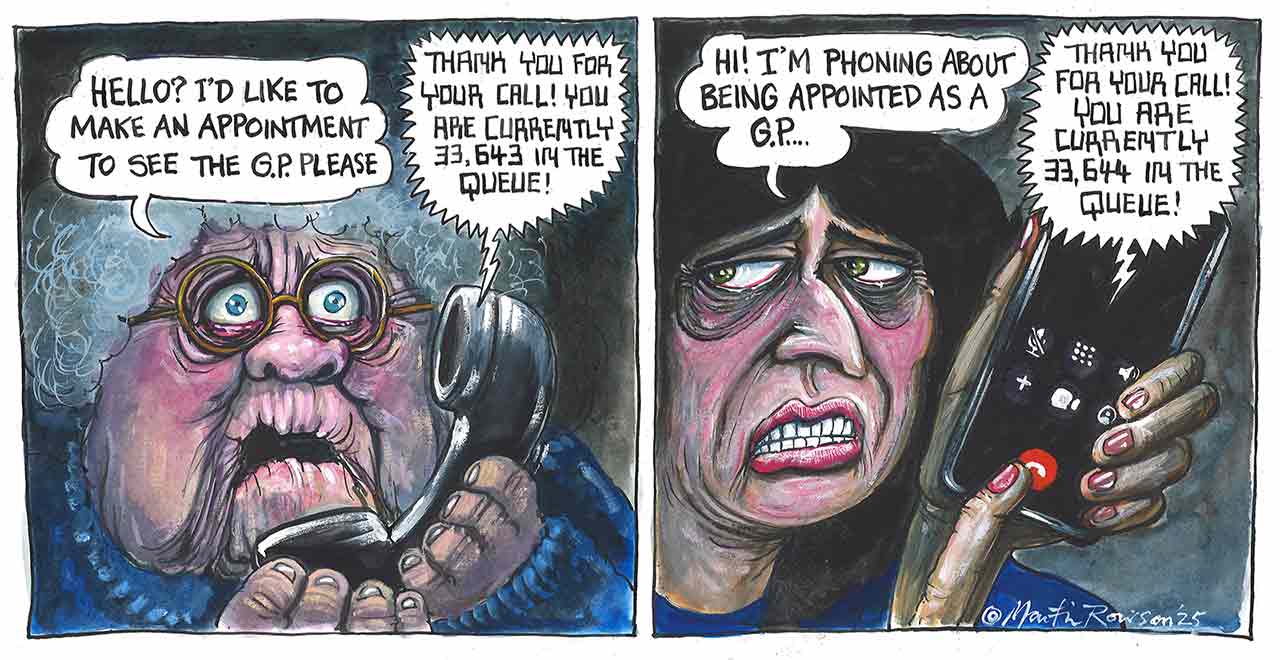
A GP contacted the College this spring, who had been looking for a new GP role for five months but found nothing. Another – a GP registrar - is settled in the UK with his young family but is anxious that when he needs his visa extended, in order to stay practising in the NHS, there will be no job vacancies at sponsoring practices available. Yet another GP registrar has told the College she is looking into alternatives, like working in secondary care or finding GP roles in different country, because she can’t find a suitable role.

Kamila Hawthorne, RCGP Chair, said: “It is absurd that whilst patients are crying out for appointments with their GP, GPs themselves are reporting being unable to find work. The NHS GP patient survey consistently shows people are satisfied with their care when they do get to see their GP, but survey after survey highlights that patients are finding it difficult to get access.”
She continued: “Numbers of registrars in GP training are increasing which should be starting to improve things, but paradoxically those post-training, or just about to CCT are struggling to find appropriate jobs.”
The RCGP has been highlighting this issue for some time. In June last year, following the results of a College survey which found that six out of 10 job-seeking GPs had struggled to find a vacancy, Kamila spoke to Times Radio. The interviewer, Aasmah Mir, spent the entire interview amazed at how it could be possible that qualifying GPs are struggling to find a job while patients struggled to get an appointment.
The College’s campaigning led, in part, to Health Secretary Wes Streeting expanding the Additional Roles Reimbursement Scheme (ARRS) to the tune of £82 million, to create posts for newly qualified GPs – and the latest we’ve heard is that around 850 full-time equivalent GPs have been employed through this scheme.
However, concerns about unemployment and underemployment have not gone away. In March, the College’s GP Registrar and First 5 Committees brought a joint paper to RCGP UK Council, with nationally elected members, Faculty and patient representatives expressing their concerns about the situation and calling for the College to work towards a solution.
“The intervention by the Health Secretary to expand ARRS funding was a necessary one, and has achieved some encouraging results – but ultimately what we want to see is more funding to be directed to GP practices through the core contract, so they have the flexibility to use it in the ways they know will benefit their patients most. Many of these new jobs on offer are not appropriate for newly qualified GPs - some are internal locums within practices in a PCN - and are paid at the lower end of the salary scale,” said Kamila.
The College has set up a task and finish group – which had its inaugural meeting last month - to come up with practical ways forward, to share concerns and to work collaboratively to improve the job opportunities of our members. The main objectives are to gather evidence and insights from across the College's member networks, campaign for solutions, and identify ways in which the College can provide practical support to members who are struggling to find employment.
The group is bringing together College members from across the GP workforce as well as patient representatives.
Kamila continued: “After a registrar works incredibly hard for 10-plus years to become a GP, they should be rewarded, not punished with inadequate job opportunities and concern for themselves and their families. We need to get to the bottom of this problem.
“The Government has set out ambitious plans for both the NHS and for primary care; they want to shift more care into the community, they want to increase the number of appointments, they want to ’bring back the family doctor’, but the College is concerned that is cannot come to fruition if enough GPs aren’t employed to deliver it.”
She added: "This issue is a major concern, not only for our members but for our patients. We hope that our new working group will allow us to tackle this deeply concerning issue head on and find some tangible solutions, so that GPs can find appropriate, fulfilling roles and our patients can get the care they deserve.”
Thank you for your feedback. Your response will help improve this page.
